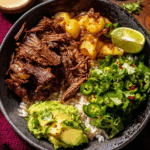Can you do Carnivore diet with chicken?
Understanding the Carnivore Diet
Definition and Basic Principles
The Carnivore Diet Chicken, at its core, is as straightforward as it gets: eat animal products, and nothing else. Sounds simple, right? But there’s more to this diet than meets the eye. It’s not just about gobbling down steaks and bacon; it’s a dietary shift that focuses on meat, fish, eggs, and certain dairy products while completely shunning fruits, vegetables, grains, and nuts. This diet is a radical departure from conventional food pyramids and nutritional guidelines, which typically advocate for a balanced plate with a variety of food groups.
Popularity and Controversies
Why has the Carnivore Diet gained such a following? For starters, its simplicity is appealing. There’s no need to count calories or measure portions. Plus, many adherents report significant weight loss, improved energy levels, and even relief from autoimmune diseases. However, it’s not all sunshine and rainbows. The diet has its fair share of critics who raise concerns about its long-term sustainability and potential health risks, such as nutrient deficiencies and increased risk of heart disease due to high intake of saturated fats.
Can Chicken Be Part of a Carnivore Diet?
Nutritional Value of Chicken
When we talk about the Carnivore Diet, the spotlight often falls on red meats like beef and lamb. But what about chicken? This lean, white meat is a powerhouse of nutrition and can be a fantastic addition to the Carnivore Diet. Chicken is not just about protein; it’s a treasure trove of essential nutrients. It’s packed with B vitamins, particularly niacin and B6, which are crucial for energy metabolism and brain health. Plus, it’s a great source of selenium, a mineral known for its antioxidant properties.
But here’s the kicker – chicken is lower in fat compared to red meats. This means it can be a lighter option for those concerned about high fat intake, especially saturated fats. And let’s not forget, chicken is incredibly versatile. Whether it’s grilled, roasted, or boiled, chicken can be a delightful variation in a diet that might otherwise feel monotonous.
Comparing Chicken to Other Meats in the Diet
Now, let’s put chicken side by side with other meats typically consumed in the Carnivore Diet. Red meats like beef and lamb are rich in iron and zinc, nutrients that are more readily absorbed from animal sources than plants. They’re also higher in calories and fats, which can be beneficial for those looking to increase their energy intake or for athletes needing more fuel.
Chicken, on the other hand, stands out for its lower calorie and fat content. It’s an excellent choice for those who might be watching their fat intake or are concerned about the potential risks associated with high consumption of red meat. Moreover, chicken provides a different flavor and texture profile, adding variety to the diet, which can be crucial for long-term adherence.
Incorporating chicken into the Carnivore Diet can offer a balance – it maintains the high-protein aspect while potentially reducing the risks associated with high saturated fat intake. It’s a way to diversify your plate while staying true to the carnivorous ethos. So, yes, chicken not only can but perhaps should be a part of a well-rounded Carnivore Diet.
Evaluating the Pros and Cons
Potential Health Benefits
Diving into the Carnivore Diet, especially with chicken as a key player, brings a host of potential benefits. First off, the high protein content is a big win. Protein is the building block of muscles, and diets high in this macronutrient support muscle growth and repair. This is particularly beneficial for athletes or anyone engaged in regular physical activity.
Another perk is weight management. High-protein diets have been linked to greater satiety, which can help curb overeating and snacking. Chicken, being lower in calories yet high in protein, can be especially effective in this regard. Additionally, for those battling with fluctuating blood sugar levels, a diet low in carbohydrates, like the Carnivore Diet, can offer more stable blood sugar control.
Furthermore, some people report improved mental clarity and energy levels on the Carnivore Diet. While the exact mechanisms are still under study, it’s thought that the reduced carbohydrate intake may play a role, shifting the body’s energy utilization towards fats and proteins.
Risks and Nutritional Concerns
However, it’s not all smooth sailing. The Carnivore Diet, even with the inclusion of chicken, raises several nutritional red flags. One major concern is the lack of fiber. Fiber is essential for digestive health, and its absence can lead to constipation and long-term gut health issues.
Another issue is the potential deficiency in certain vitamins and minerals, particularly those abundant in fruits and vegetables, like Vitamin C and various phytonutrients. While chicken provides certain B vitamins, it lacks the diversity of nutrients found in a more varied diet.
The diet’s high content of animal protein and fat also rings alarm bells. Diets high in saturated fats, often found in red meats, are linked to increased risks of heart disease and high cholesterol. While chicken is a leaner option, the exclusion of plant-based foods and their associated benefits, like heart-healthy fats and antioxidants, is a concern.
Lastly, the social and practical aspects of following such a restrictive diet shouldn’t be underestimated. It can be challenging to maintain in social settings and may lead to a sense of isolation or difficulty in adhering to the diet long-term.
In summary, while the Carnivore Diet with chicken can offer benefits like high protein intake and potential weight loss, it comes with significant risks and nutritional drawbacks. It’s a diet that requires careful consideration and, ideally, guidance from a healthcare professional to ensure all nutritional needs are met.
Crafting a Carnivore Diet with Chicken
Sample Meal Plans
Integrating chicken into a Carnivore Diet can bring variety and balance. Here’s a glimpse at what a day might look like:
Breakfast: Start your day with a hearty chicken omelet. Whisk together eggs and shredded chicken, cook in a skillet, and you’ve got a protein-packed breakfast that’s both filling and delicious.
Lunch: For lunch, how about a chicken salad? Take some grilled chicken breast, slice it up, and serve it over a bed of mixed greens (if you’re including some non-meat items in your diet) or alone with a side of hard-boiled eggs for an extra protein punch.
Dinner: Dinner could be a succulent roast chicken. Season a whole chicken with herbs and spices, roast it to perfection, and enjoy a meal that’s both simple and satisfying.
Creative Chicken Recipes
The beauty of chicken is its versatility. Here are a couple of creative recipes to spice up your Carnivore Diet:
Chicken Wrapped in Bacon: Wrap chicken breasts or thighs in bacon and bake until the chicken is cooked through and the bacon is crispy. This dish combines the lean protein of chicken with the rich flavor of bacon, making it a Carnivore Diet delight.
Spicy Chicken Wings: Marinate chicken wings in a mix of hot sauce and butter, then grill or bake them. Serve these spicy wings as a snack or a meal, and you’re in for a treat that’s both fiery and flavorful.
Incorporating chicken into your Carnivore Diet not only adds nutritional value but also opens up a world of culinary possibilities. From simple grilled chicken to more elaborate dishes, chicken can keep your diet both interesting and enjoyable. Remember, the key to a successful Carnivore Diet is variety, and chicken offers just that.









